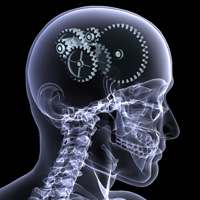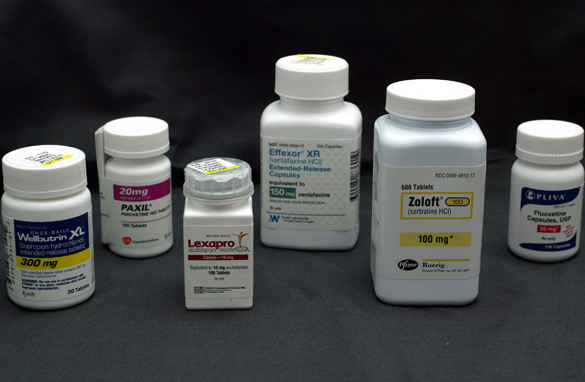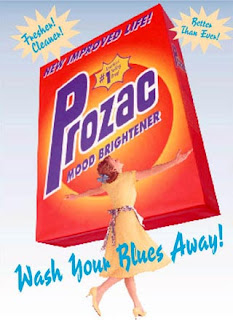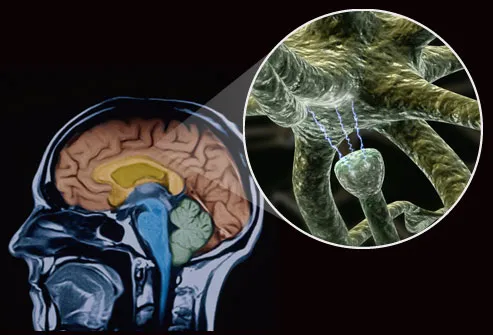The author on why he became a writer and how it shaped his recovery from mental illness and addiction.
People often ask me how the hell I do so much writing every week, between the three-to-four pieces I do for my employer, CSO Magazine, this blog and a book I’m writing on the side. They also ask how I’m able to write so fast, especially during security conferences.
At the Security B-Sides event in San Francisco in March, one friend marveled that I was able to write and post an article on a talk she had just given within minutes of the presentation ending. My friend Jennifer Jabbusch explained it well when she said, “That’s his job. It’s what he does.”
So, I figured it’s time I wrote something about writing.
When I was a kid, everyone expected me to become an artist because I was constantly drawing. In fact, I went to Northeast Metro Tech for high school to study architecture and was well on my way to settling on that for a career. Then, as my passion for metal music deepened, I became obsessed about poetry and the lyrics people like Nikki Sixx, Phil Lynott and James Hetfield were writing. So I started trying to BE them. I do still use the architectural skills when I write, so it wasn’t a waste of studies. When I write security articles, I usually approach it the way an architect approaches each new blueprint.
In hindsight, I wasn’t very good at it. But I persisted. The more music I listened to — and as an employee of Rockit Records, I had access to an endless supply — the more lyrics I wrote.
A lot of what I wrote became the lyrics for songs I would write with the band Skeptic Slang. The lyrics were mostly negative reactions to life at the time. In fact, if I were at a party with the me of the late 1980s-early 1990s, I probably wouldn’t like the younger me very much. I would dismiss him as a whiny little punk. But I was just a product of my experiences up to that point. Those who have read this blog from the beginning will understand. Those who don’t can get the back story here.
Finding those old notebooks full of Skeptic Slang lyrics has become a mini obsession of mine.
As I was ramping up the music writing, I was pursuing a parallel passion for journalism. In college, I dove into it relentlessly, writing for the Salem State Log and slowly earning myself a degree in English (the major) and Communications (the minor). I also helped edit submissions for Sounding’s East, the college literary magazine edited by a beautiful redhead who I eventually married. If you really want to know how to write effectively, check out her blog here.
I had my first reporter job before I graduated, covering the Swampscott, Mass. school district. From there I got a full-time reporting gig in Stoneham, then started editing for papers in Lynn, Billerica, Chelmsford and Westford. I was not a fast writer back then. Thanks to the OCD, I would slowly outline each story and, after writing the first draft, I’d read it back aloud, again and again, polishing one paragraph at a time. I would annoy many a colleague doing that, especially when I became night editor at The Eagle-Tribune.
Things started to go wrong in the latter job, because that’s when the surface cracks of my OCD started to appear and I started falling apart. One of the lessons, in hindsight, was that it was a mistake to go into all editing with no writing. I lost sight of why I got into the business when I became a full-on editor.
My entrance onto the information security scene was a result of my craving to write again. The security beat at TechTarget was my way back in, and I haven’t stopped since.
Some things have changed, though.
My writing is much faster today. I don’t do outlines of each story and I don’t read ’em back to myself aloud. I just do it and send them off to an editor. That’s partly the result of experience and partly the result of bringing the OCD under control, since the over polishing was an obsessive-compulsive action.
The result is that I don’t mind having several projects in play at once. In fact, I wouldn’t have it any other way.
I need to write every day for mental exercise. The action of typing is now a soothing action for me. I love the sound and feel of my fingers pounding away on each key. It’s like the music I listen to while I write.
I am a two-fingered typist, by the way. I’m proud of that fact.
When I started this blog it was because I was ready to share my experiences so others might be compelled to come out of the shadows of mental illness and addiction. Hopefully I’ve had some success there. But regardless, this particular writing has become a critical tool of my own recovery.
By writing about the experience, I get them out of my head and can move on.
It’s no embellishment to say I’m literally writing to save my life. Writing HAS saved my life.


![[ImgPet.jpg]](https://theocddiaries.com/wp-content/uploads/2012/04/imgpet.jpg?w=300)








